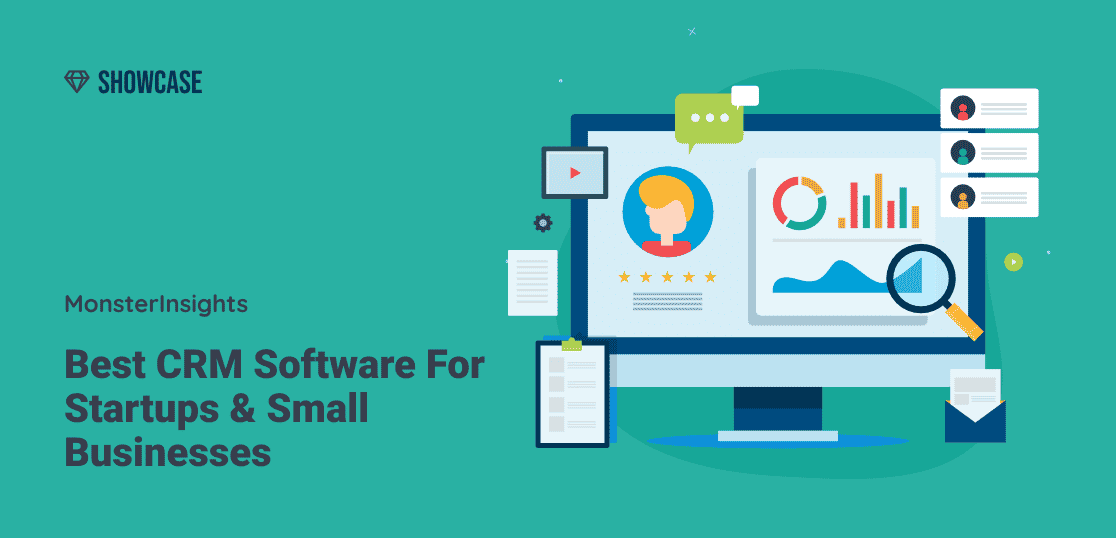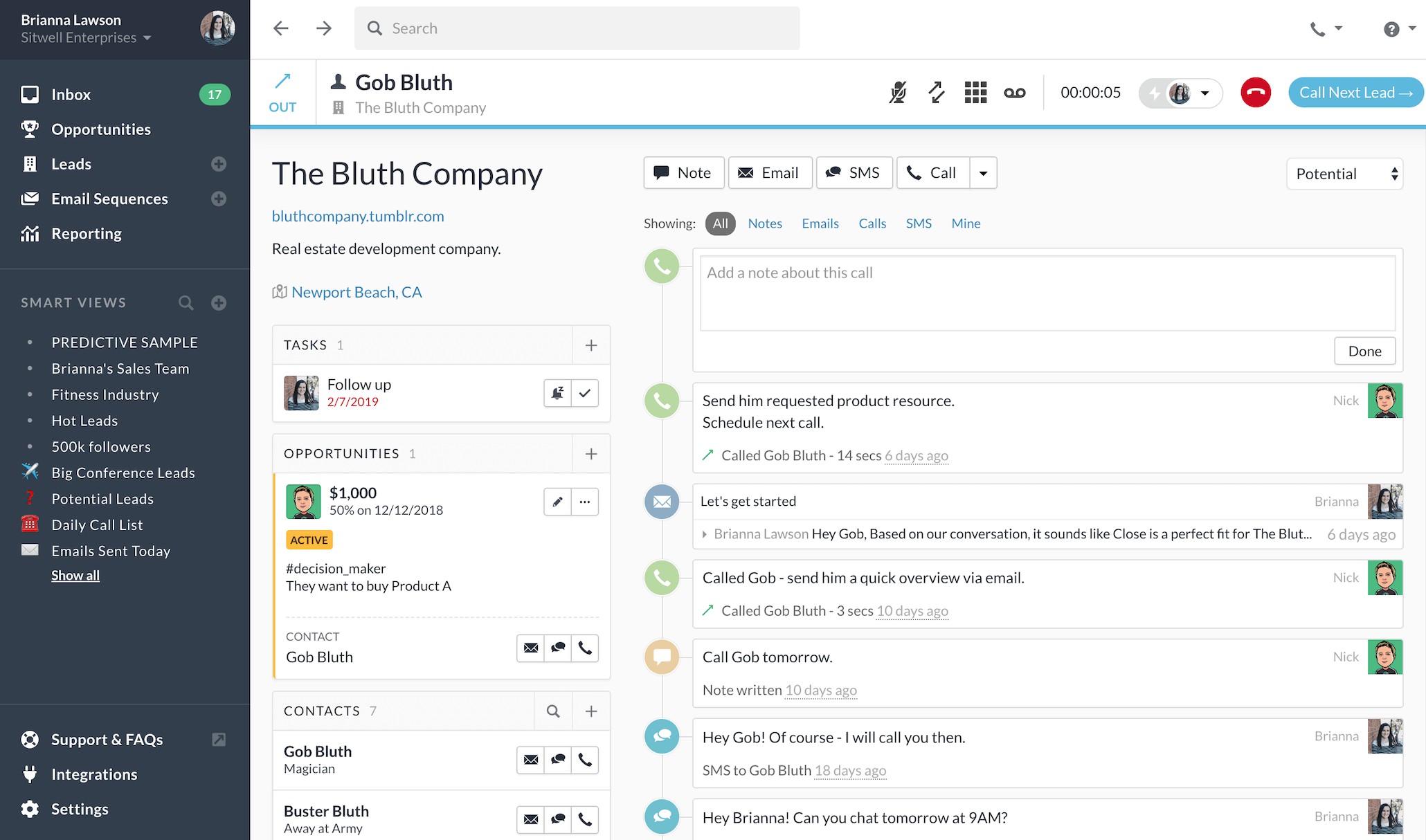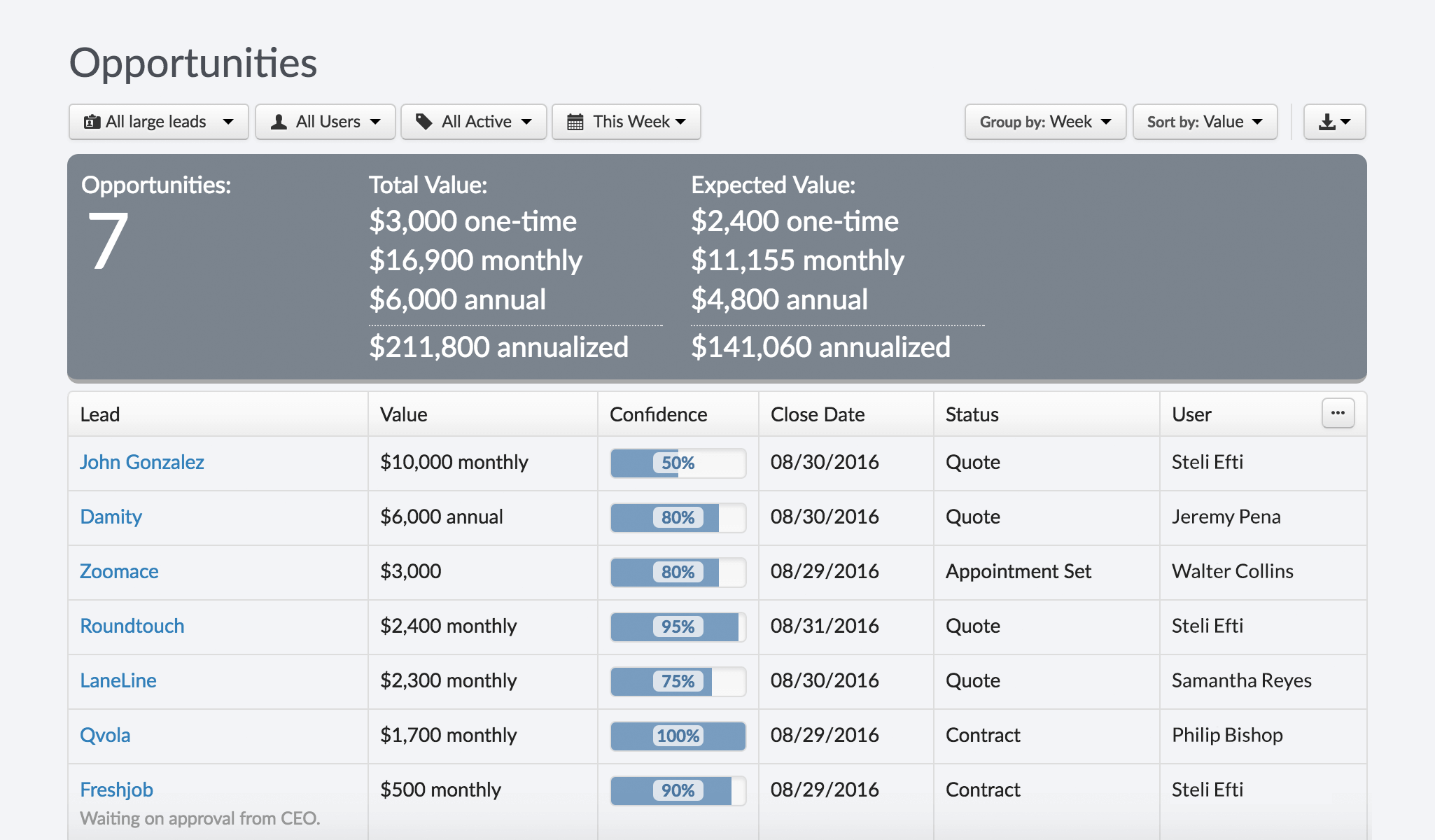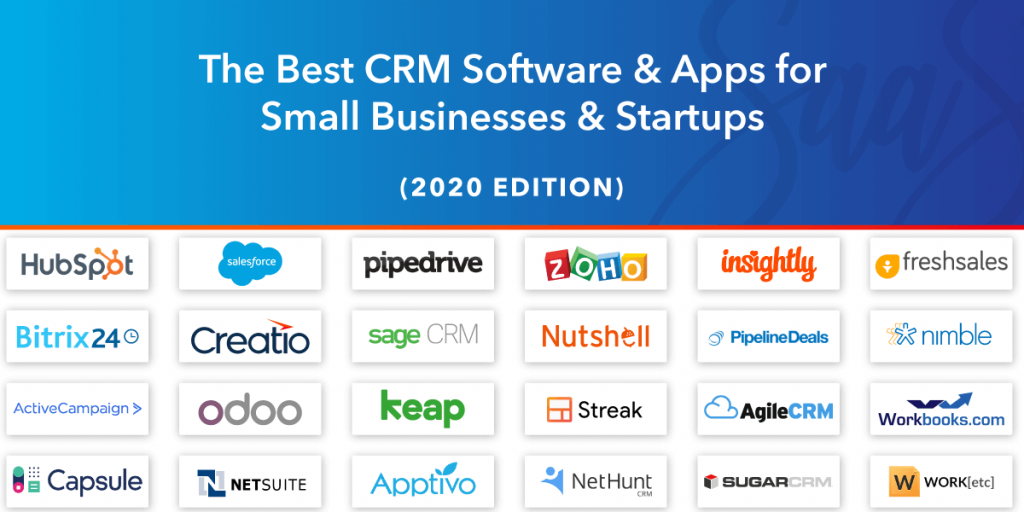In the dynamic landscape of startups, effective customer relationship management (CRM) is paramount. CRM software for startups empowers businesses to streamline operations, foster customer engagement, and drive growth. This comprehensive guide explores the benefits, key features, and implementation strategies of CRM software, empowering startups to harness its transformative potential.
As a startup, implementing the right CRM software can be a game-changer. It provides a centralized platform to manage customer interactions, automate workflows, and gain valuable insights into customer behavior. By leveraging the power of CRM, startups can build strong customer relationships, optimize sales processes, and drive business success.
Overview of CRM Software for Startups
Customer Relationship Management (CRM) software is an essential tool for startups looking to manage their customer relationships effectively. It helps startups track customer interactions, automate tasks, and gain insights into customer behavior.
Key features to look for in a CRM system for startups include:
- Contact management: Store and organize customer contact information, including name, email, phone number, and social media profiles.
- Activity tracking: Track customer interactions, such as emails, phone calls, and meetings, to get a complete view of customer engagement.
- Sales pipeline management: Manage the sales process from lead generation to close, track progress, and identify opportunities.
- Marketing automation: Automate marketing tasks, such as email campaigns, social media marketing, and lead nurturing.
- Reporting and analytics: Generate reports and analyze customer data to gain insights into customer behavior and improve decision-making.
Popular CRM Software Options for Startups
Here are some popular CRM software options for startups:
- HubSpot CRM: A free and easy-to-use CRM system that offers a range of features, including contact management, email marketing, and sales pipeline management.
- Salesforce Essentials: A cloud-based CRM system that offers a range of features, including contact management, activity tracking, and sales pipeline management.
- Zoho CRM: A cloud-based CRM system that offers a range of features, including contact management, activity tracking, and sales pipeline management.
How to Choose the Right CRM Software

Selecting the right CRM software is crucial for startups to streamline their operations and enhance customer relationships. To make an informed decision, it’s essential to consider the specific needs of your startup and evaluate different software options based on features, pricing, and support.
Identify the Specific Needs of Your Startup
Start by defining the key objectives you want to achieve with a CRM system. Consider your industry, business size, team size, and specific pain points you’re facing. Identify the essential features you need, such as contact management, lead tracking, sales automation, or customer support.
Compare Different CRM Software Options, Crm software for startups
Research and compare different CRM software options available in the market. Consider their features, pricing plans, customer reviews, and support options. Look for software that aligns with your specific requirements and offers the best value for your investment.
Provide a Step-by-Step Guide to Choosing the Right CRM Software
- Define your CRM requirements and objectives.
- Research and shortlist a few CRM software options.
- Request demos and free trials to evaluate the software firsthand.
- Compare features, pricing, and support offerings.
- Consider user experience, ease of implementation, and scalability.
- Select the software that best meets your needs and budget.
Implementing and Using CRM Software

To successfully implement and utilize your CRM software, a well-defined plan and effective execution are crucial. Here are some key steps to consider:
Firstly, it’s essential to design a comprehensive plan for implementing your CRM software. This plan should Artikel the project timeline, resource allocation, and a clear communication strategy to ensure everyone is aligned and informed throughout the process.
Organize Your Data and Set Up Workflows
Organize your data and set up automated workflows to streamline your processes and maximize efficiency. Establish a consistent data structure, ensuring all relevant customer information is captured and easily accessible. Additionally, configure automated workflows to trigger specific actions based on pre-defined criteria, reducing manual tasks and improving response times.
Train Your Team on How to Use the CRM System
Training your team on how to effectively use the CRM system is paramount to its successful adoption. Provide comprehensive training sessions that cover the core functionalities, best practices, and reporting capabilities of the software. Empower your team with the knowledge and skills to leverage the CRM system to its full potential.
Benefits of Using CRM Software
CRM software can provide numerous benefits for startups, helping them streamline their sales and marketing processes, improve customer relationships, and increase efficiency.
By centralizing customer data and automating tasks, CRM software can help startups save time and resources while gaining a better understanding of their customers’ needs and preferences. This can lead to improved customer satisfaction, increased sales, and better decision-making.
Case Studies
Here are a few case studies of startups that have successfully used CRM software to improve their business:
- Dropbox: Dropbox used Salesforce CRM to manage its customer relationships and track its sales pipeline. This helped the company to streamline its sales process and close more deals.
- Airbnb: Airbnb used Salesforce CRM to manage its customer relationships and track its bookings. This helped the company to improve its customer service and increase its bookings.
- Shopify: Shopify used Salesforce CRM to manage its customer relationships and track its sales pipeline. This helped the company to grow its business and become one of the leading e-commerce platforms.
Success Stories
Here are a few success stories from startups that have implemented CRM software:
“CRM software has been a game-changer for our startup. It has helped us to streamline our sales and marketing processes, improve our customer relationships, and increase our efficiency. We’ve seen a significant increase in our sales and customer satisfaction since implementing CRM software.”
CEO of a software startup
“CRM software has helped us to better understand our customers’ needs and preferences. This has led to improved customer service and increased sales. We’re very happy with the results we’ve seen from using CRM software.”
Marketing manager of a SaaS startup
Advanced Features of CRM Software: Crm Software For Startups

As startups grow and expand, they may need more advanced features in their CRM software to manage their increasingly complex customer relationships. These features can help startups automate tasks, gain insights into customer behavior, and improve their overall efficiency.
Some of the most common advanced features of CRM software include:
- Marketing automation:This feature allows startups to automate their marketing campaigns, such as email marketing, social media marketing, and paid advertising. This can save startups time and money, and it can also help them reach more potential customers.
- Sales automation:This feature allows startups to automate their sales processes, such as lead generation, lead qualification, and opportunity management. This can help startups close more deals and increase their revenue.
- Customer service automation:This feature allows startups to automate their customer service processes, such as ticket tracking, knowledge base management, and live chat. This can help startups provide better customer service and reduce their customer churn rate.
- Reporting and analytics:This feature allows startups to track their CRM data and generate reports. This can help startups understand their customer behavior, identify trends, and make better decisions.
- Integration with other software:This feature allows startups to integrate their CRM software with other software, such as accounting software, email marketing software, and project management software. This can help startups streamline their operations and improve their efficiency.
Benefits of using advanced CRM features:
- Increased efficiency:Advanced CRM features can help startups automate tasks and streamline their processes, which can save them time and money.
- Improved customer relationships:Advanced CRM features can help startups track customer interactions, identify customer needs, and provide personalized service, which can lead to improved customer relationships.
- Increased revenue:Advanced CRM features can help startups close more deals and increase their revenue by providing them with the tools they need to manage their sales pipeline and track their progress.
Drawbacks of using advanced CRM features:
- Cost:Advanced CRM features can be expensive, especially for startups on a tight budget.
- Complexity:Advanced CRM features can be complex to implement and use, which can require additional training and support.
- Data security:Advanced CRM features can store sensitive customer data, so it is important to ensure that the software is secure and that data is protected.
Examples of how startups can use advanced CRM features:
- A startup could use marketing automation to send personalized emails to potential customers based on their interests and behavior.
- A startup could use sales automation to track their sales pipeline and identify opportunities for growth.
- A startup could use customer service automation to provide live chat support to their customers and resolve issues quickly.
- A startup could use reporting and analytics to track their customer churn rate and identify ways to improve customer retention.
- A startup could use integration with other software to connect their CRM software to their accounting software and email marketing software, which would allow them to streamline their operations and improve their efficiency.
CRM Software for Specific Industries
CRM software can be tailored to meet the unique needs of different industries. By understanding the specific challenges and opportunities in each industry, startups can select a CRM solution that aligns with their goals and objectives.
The following table provides a comparison of CRM software options for different industries, along with examples of startups that have successfully used CRM software in each industry:
Healthcare
- Software:Salesforce Health Cloud, Veeva CRM
- Startups:Oscar Health, Livongo Health
- Case Study:Salesforce Health Cloud helped Oscar Health improve patient engagement and reduce costs by 20%.
Financial Services
- Software:Salesforce Financial Services Cloud, SAP Hybris Cloud for Banking
- Startups:SoFi, Betterment
- Case Study:SAP Hybris Cloud for Banking helped Betterment increase customer satisfaction by 30%.
Retail
- Software:Salesforce Commerce Cloud, Oracle Retail CRM
- Startups:Warby Parker, Bonobos
- Case Study:Salesforce Commerce Cloud helped Warby Parker increase online sales by 50%.
Technology
- Software:Salesforce Sales Cloud, HubSpot CRM
- Startups:Dropbox, Airbnb
- Case Study:HubSpot CRM helped Airbnb increase lead conversion by 25%.
Manufacturing
- Software:Salesforce Manufacturing Cloud, SAP Hybris Cloud for Manufacturing
- Startups:Formlabs, Desktop Metal
- Case Study:Salesforce Manufacturing Cloud helped Formlabs reduce lead response time by 50%.
Education
- Software:Salesforce Education Cloud, Ellucian CRM
- Startups:Coursera, Udacity
- Case Study:Salesforce Education Cloud helped Coursera increase student enrollment by 20%.
Future Trends in CRM Software

The future of CRM software holds exciting advancements that will revolutionize customer relationship management for startups. Emerging trends are shaping the industry, introducing new features and technologies that enhance customer engagement, streamline operations, and drive growth. Startups that embrace these trends will gain a competitive edge and position themselves for success in the evolving digital landscape.
Artificial Intelligence and Machine Learning
Artificial intelligence (AI) and machine learning (ML) are transforming CRM software, enabling businesses to automate tasks, gain deeper insights into customer behavior, and provide personalized experiences. AI-powered CRM systems can analyze vast amounts of data, identify patterns, and predict customer needs, allowing startups to make informed decisions and deliver tailored interactions.
Customer Data Platforms
Customer data platforms (CDPs) are becoming increasingly important for startups as they provide a centralized hub for collecting, managing, and analyzing customer data from various sources. By integrating with CRM software, CDPs create a comprehensive view of each customer, enabling startups to develop targeted marketing campaigns, deliver personalized experiences, and improve customer retention.
Cloud-Based CRM
Cloud-based CRM solutions are gaining popularity due to their flexibility, scalability, and cost-effectiveness. Startups can access CRM software from anywhere, on any device, without the need for expensive hardware or IT support. Cloud-based CRM systems also offer regular updates and new features, ensuring startups always have access to the latest advancements.
Mobile CRM
Mobile CRM apps are essential for startups that need to manage customer relationships on the go. Mobile CRM allows sales teams to access customer information, update records, and close deals from their smartphones or tablets. This increased mobility enhances productivity and enables startups to respond quickly to customer inquiries.
Social CRM
Social CRM integrates social media platforms with CRM software, allowing startups to monitor customer interactions, engage with customers on social media, and build stronger relationships. Social CRM tools provide insights into customer sentiment, identify potential leads, and enhance brand reputation.
Closing Summary
In conclusion, CRM software is an indispensable tool for startups looking to establish a solid foundation for growth. By embracing the benefits and implementing the right solution, startups can streamline operations, enhance customer engagement, and gain a competitive edge. As technology continues to evolve, CRM software will undoubtedly remain a vital asset for startups navigating the ever-changing business landscape.
Common Queries
What are the benefits of using CRM software for startups?
CRM software provides numerous benefits for startups, including centralized customer data management, automated workflows, improved sales efficiency, enhanced customer service, and data-driven decision-making.
How do I choose the right CRM software for my startup?
To choose the right CRM software, consider your specific business needs, industry requirements, budget, and team size. Evaluate different software options based on their features, pricing, support, and ease of use.
What are some popular CRM software options for startups?
Some popular CRM software options for startups include Salesforce Essentials, HubSpot CRM, Zoho CRM, Pipedrive, and Freshsales. These solutions offer a range of features tailored to the needs of growing businesses.
